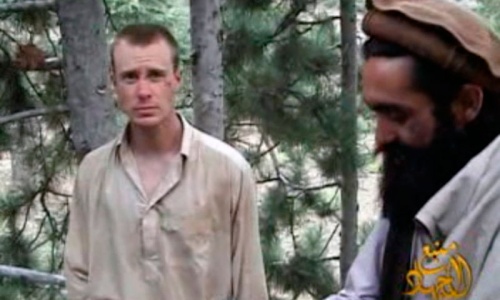PRIME Minister Nawaz Sharif indicated on March 14 that “the Taliban who are not involved in militancy will be released as the government wants to resolve issues through consultations”. He, however, also ruled out accepting demands that may be in conflict with the constitution or the law of the land.
The indication came following a clarification last month by the military, denying the custody of innocent women, children or elderly people.
The military spokesman had in fact snubbed TTP claims to this effect as “mere propaganda to divert attention from the real issue of the group’s blatant and dastardly acts of terror across the country”.
The TTP and its nominated negotiators on their part are demanding the release of non-combatants as a “pre-condition” for talks, but Sharif’s latest statement gives a new twist to the issue and raises serious questions.
First, is the prime minister, too, talking about non-combatant women and children or does he mean the Taliban in military custody when he refers to “the Taliban who are not involved in militancy”?
Second, is the prime minister really thinking of the release option for certain “innocent members of the TTP currently under detention”, as a pre-condition or as an end-condition without the due process of law? What merits mention here is that the controversial Protection of Pakistan Ordinance (PPO) regulates detention for more than three months of suspects of terrorism and “those waging war against the country”.
The ordinance had been introduced to provide a legal cover for persons in the custody of security agencies as well as to authorise them to detain a suspect for more than 90 days.
Currently, as many as 735 suspected terrorists and militants are being held at about a dozen internment centres — also legally backed by a presidential ordinance on such facilities. Most of the internees face various charges under the anti-terror law of last year — either under trial or awaiting trial.
Thirdly, what legal tool will the government deploy to set at least a few TTP detainees free?
The whole issue seems to be fraught with both security risks as well as legal hiccups. It’s quite understandable to soften the militants through some symbolic goodwill gestures such as the release of those prisoners who fall in white or maybe even grey area. Such goodwill gestures do constitute an essential part of negotiations and have been witnessed in various conflicts such as in Colombia, African states, the Philippines and Sri Lanka.
Prisoners’ swap has also been at the centre of the American-led efforts to pursue Afghan Taliban into peace. The American administration wants the release of the American captive Bowe Bergdahl before the bulk of US forces leave Afghanistan later this year; the Afghan Taliban had been demanding the release of five of their colleagues being held at Guantanamo for years. The issue remains stalled because of legal complications on the American side.
Similarly, the real challenge for the Pakistan government in doing so will be:
a) Whether the military, which is the actual boss of the highly secured internment centres for terrorists “caught red-handed with incriminating evidence”, will consent to the release of some of the inmates which it believes are hard-core militants.
b) Which legal tools will the government invoke to secure the release of such persons? Possibly a new ordinance, which will set aside the PPO or suspend parts of it. By setting suspected militants free without the due course of law, the government itself will compromise the sanctity of the rule of law.
c) How will the government keep track of those released? One must recall the circumstances following the February 2009 Swat peace deal which had resulted in the quiet release of some three dozen “innocent” TTP operatives but within a few weeks a number of security forces personnel, government officials and some civil society activists were put down, ostensibly by released TTP zealots, including notorious ‘commanders’ Ibne Ameen and Omar Fateh. Both of them had publicly admitted to having “taken revenge on their informers”.
Some of their statements came over the Mulla FM Radio that Fazlullah and his deputy Shah Dauran had been using for intimidating all and sundry.
We could potentially face a similar spectre if some “innocent” Taliban were to walk into freedom and went about the business of score-settling, if not cold-blooded revenge. Will the government risk this option — which can entail a lot of insecurity for the neighbourhoods to which the freed militants belong — without an elaborate monitoring mechanism to keep track of the movements of those released?
As a whole, the matter of TTP prisoners’ release represents a big political and legal test for the government, particularly in view of the prime minister’s resolve not to deviate from the constitution. It will most probably also need to take the armed forces on board for obliging the TTP. And it remains questionable as to whether both can think and act in unison on this extremely delicate issue, without compromising the integrity of the existing legal framework.














































